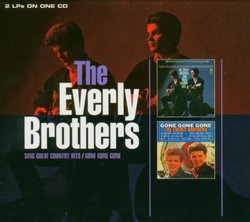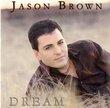| All Artists: Everly Brothers Title: Sing Great Country Hits / Gone Gone Gone Members Wishing: 3 Total Copies: 0 Label: Warner Spec. Mkt. UK Release Date: 10/10/2005 Album Type: Import, Original recording remastered Genres: Country, Pop, Rock Style: Oldies Number of Discs: 2 SwapaCD Credits: 2 UPC: 5050467583023 |
Search - Everly Brothers :: Sing Great Country Hits / Gone Gone Gone
 | Everly Brothers Sing Great Country Hits / Gone Gone Gone Genres: Country, Pop, Rock
Two CD set combines their 1963 album Sing Great Country Hits, which was just what the title said: all covers of fairly recent country smashes, none of them Everly Brothers originals, and 1965's Gone Gone Gone. On Sing Gre... more » |
Larger Image |
CD DetailsSynopsis
Album Description Two CD set combines their 1963 album Sing Great Country Hits, which was just what the title said: all covers of fairly recent country smashes, none of them Everly Brothers originals, and 1965's Gone Gone Gone. On Sing Great Country Hits the duo's harmonizing was superb, the backing tasteful, and the material intelligently selected, including classics by some of the top country songwriters and performers of the '50s & '60s. Includes 'Oh, Lonesome Me', 'I'm So Lonesome I Could Cry', 'I Walk The Line', 'I Can't Stop Loving You', 'Release Me', 'Silver Threads and Golden Needles', 'Send Me The Pillow You Dream On' and 'Born to Lose'. Gone Gone Gone delivered much of what Everly Brothers fans had been thirsting for since 1961: an album of bona fide rock'n'roll, the detours into hardcore country songs and adult pop tunes banished for the time being. Moreover it also marked, at long last, a new crop of Everlys songs composed by Boudleaux and Felice Bryant, the husband-wife team who'd been responsible for penning many of their best hit singles and album tracks in the late '50s & early '60s. Rhino. 2005. Similar CDs
|
CD ReviewsThey were still wondering what to do Peter Durward Harris | Leicester England | 06/13/2008 (5 out of 5 stars) "Following their two albums of oldies covers, the Everly Brothers finally decided to record an album of country songs. This took them back to their Kentucky roots, but with a twist. They recorded the album entirely in Hollywood, not Nashville where they'd previously recorded most of their music. Nevertheless, the recordings were made with musicians from the fledgling Los Angeles country-rock scene including Glen Campbell (then still making a living as a session guitarist) and Leon Russell. With the exception of This is the last song I'm ever gonna sing (which mercifully they didn't really mean), all the songs were covers of classic country songs, every one of which remains a country classic. The influences are obvious as there are three Don Gibson songs (Oh lonesome me, Just one time, Sweet dreams) while two others were country hits for Hank Locklin (Send me the pillow you dream on, Please help me I'm falling) and two others were country hits for Kitty Wells (Release me, Lonely Street). The liner notes contain some interesting observations about these songs, but omit to mention Esther Philips' American hit version of Release me, although several other hit versions are mentioned. Still, the writer of these notes (Andrew Sandoval) can be forgiven for those omissions, especially as he told us some interesting facts that I didn't know, especially about Lonely Street. Another great song here is Silver threads and golden needles. First recorded by Wanda Jackson, this has been recorded by a number of great singers through the years, though it seems that women have been more enthusiastic about recording this song than men. I'm not clear why that is, but I'm glad that Don and Phil recorded this wonderful song. Maybe Don and Phil could have established themselves as bona-fide country singers (as Jerry Lee Lewis did in the late sixties and early seventies) but it is clear that they never wanted to do that although they kept returning to country music periodically as two later albums (Roots, Pass the chicken and listen) clearly illustrate. Meanwhile, they changed direction again in the quest for major pop hits that had become increasingly elusive. With the first twelve tracks of this set being occupied by the country album already described, the remaining 23 tracks comprise a seemingly miscellaneous selection of recordings made between 1963 and 1965, together with two tracks (Donna Donna, Lonely island) recorded in 1960 but not released until 1965, when they appeared on the album Gone gone gone. That album actually occupies tracks 13 to 24 here, but it was hastily assembled to capitalize on the relative success of the title track. It is a reflection of how far things had changed that getting into the top forty on both sides of the Atlantic was regarded as a success, even though it didn't make the top thirty in either Britain or America. Most, if not all, of the remaining eleven tracks were available for inclusion in that album. I don't know the criteria used, but let's just say that a different compiler might have chosen different tracks to include on the album. Among the tracks originally included on Gone gone gone, the best known is likely to be The ferris wheel, which just missed the top tewenty in Britain but was only a minor hit in America. Torture (a John D Loudermilk song) was originally a top twenty American hit for Kris Jensen. Translated into French as Coeur blesse, the song became a French number one hit for Petula Clark in 1963. You might also recognize Ain't that lovin' you baby, a cover of a Jimmy Reed song. Of the track not included then but which appear here as bonus tracks, the two most important are The girl sang the blues (a top thirty UK hit) and Love her (released as the B-side of The girl sang the blues, it made the American bubbling under chart despite the A-side not charting at all). Later, the Walker Brothers covered it and it became their first UK chart hit, just making the top twenty. The closing track (Girls girls girls) was never officially released anywhere prior to its appearance here. Providing they don't mind cover versions, country music fans will love the first album here. The strength of the country songs is such that maybe even pop music fan who aren't particularly interested in country may regard this album as the strongest part of this compilation. The Gone gone gone album and the bonus tracks offer plenty of variety although the songs aren't always strong. If you're an Everly fan and you enjoy exploring their sometimes eclectic music, you'll find plenty here to interest you." Re-issue that does the Everlies proud Laurence Upton | Wilts, UK | 06/21/2008 (4 out of 5 stars) "This series of 2 LPs on one CD of the Everlies Warner catalogue, is a text book example of how to do it. Full albums, augmented by singles and enough outtakes to fill the CD, all superbly mastered from the original definitive stereo tapes, with copious notes that don't gloss over the behind the scenes difficulties and clashes, fully illustrated with the original artwork, packaged in a protective cardboard sleeve, and sold at a budget price. This particular pairing follows Both Sides Of An Evening/Instant Party sequentially in the series, though in between they had released the compilation of Warner material The Golden Hits Of The Everly Brothers and the seasonal Christmas With The Everly Brothers And The Boys Town Choir. Before Gone Gone Gone there had also been The Very Best Of The Everly Brothers, consisting of new recordings of their Cadence hits as well as half-a-dozen repeats from Golden Hits. Great Country Hits was a project recorded over two days in June 1963 and produced no singles at the time, though Born To Lose and a couple of others would probably have fared quite well had they been released (Release Me and Sweet Dreams were dusted off for release as a single in 1966). Interestingly, the album was not recorded in Nashville, as one might have expected for a country record, but in Hollywood, producing a fresh feel to the songs with a top crew including Wrecking Crew players Billy Strange, Glen Campbell, Leon Russell and Hal Blaine, and pedal steel maestro Red Rhodes to add that country edge, while avoiding Nashville MOR gloss. Sonny Curtis, writer of Walk Right Back, was also on hand and was co-writer with fellow cricket Jerry Allison of the one non standard country tune, This Is The Last Song I'm Ever Going To Sing. This closed the album, and their single at the time, It's Been Nice, had been recorded two years earlier, but the lyric soon turned out to be a false prophecy after all. Gone Gone Gone was a rather hurriedly put out album, released in January 1965, capitalizing on their first US hit Top 40 hit in nearly three years with the song Gone Gone Gone, possibly their greatest upbeat recording to date (How Can I Meet Her? comes very close), and a Don and Phil composition to boot, their relaxed harmonies really jelling with the terrific studio band, controlled by some fantastic drumming from Hal Blaine (I surmise). To make the album up to weight the record company ignored a couple of new recordings as well as several tracks that had been out on singles since the last album, and instead chose three recordings from 1960; two outtakes (Lonely Island and Radio And TV, both Boudleaux and Felice Bryant songs previously withheld for contractual reasons) and, curiously, the opening track Donna Donna, which had been on A Date With The Everly Brothers in 1960 (now slightly remixed and simultaneously released as a B-side to Made To Love, another oldie). Two other singles were included, though, The Ferris Wheel and the bluesy standard Ain't That Loving You Baby, along with a flipside, Torture, an excellent revival of the John D Loudermilk song, and overall it was probably a better sounding album than Great Country Hits, since at last they were again able to use their own songs and those of Boudleaux and Felice Bryant, who between them provide five songs. The missing singles have thoughtfully been added by Warner, and they are The Girl Sang The Blues/Love Her, Ring Around My Rosie/You're The One I Love, and B-sides Hello Amy, Nancy's Minuet and Don't Forget To Cry. The other bonus tracks were all unreleased at the time but some have since turned up on retrospective releases, and include Girls, Girls, Girls (What A Headache) which humorously name checks several of the girls from earlier Everlies records such as Susie, Cathy, Claudette and Jenny." The Everly Brothers Sing Great Country Hits: VASTLY UNDERRAT revolucionaria | 10/07/2007 (4 out of 5 stars) "When released in 1963, SGCH was considered a step backwards in the eyes of the public. It wasn't a typical Everly album with originally penned (e.g. Bodleaux-Bryant) hits, and it came out when the massive stream of Everly hits was on the wane.
However, SGCH exemplified the best of what the Nashville Sound could offer. Quality of the recordings was excellent, and more interestingly, many of the arrangements of what one would consider 'country standards' reached some new territories here. Not only do the country arrangements benefit from (what would then be an unheard of) complementary black blues idioms (e.g. I'm So Lonesome I Could Cry) - but the more upbeat songs were the first hints (in fact, preceding by 2 years) the electrified sounds that would be later associated with the electric folk rock sound. and remember, this was 1963." |

 Track Listings (35) - Disc #1
Track Listings (35) - Disc #1


